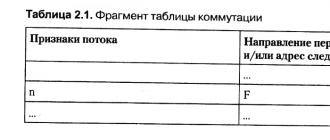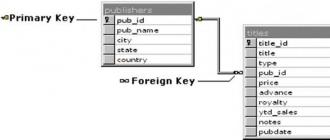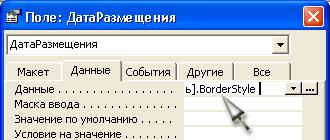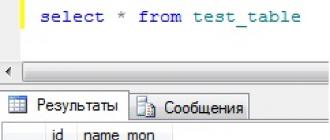Yandex.DNS is a Yandex service primarily aimed at page loading speed, protection against viruses and adult materials. Yandex contains several (about 80) dns servers around the world that do an excellent job with the tasks assigned to them.
How Yandex.DNS works
In total, there are 3 modes of working with the service:
- Basic Mode - is aimed at increasing the speed of the Internet connection, which does not go through the server of your provider, but through the nearest dns Yandex server
- Safe mode - it includes the first and plus does not give access to potentially infected sites. Sometimes the virus can be picked up on a trusted site. If you try to open such a site, Yandex.DNS in "Safe" and "Family" modes will stop downloading data and display a warning to the user. To check and block such sites, Yandex uses its own antivirus, specially developed for these purposes.
- Family mode - It includes the first 2 and blocks all sites with "adult 18+" content. This is primarily done to protect children from such content, although it can be applied against some adults who abuse such content 🙂
Also, in safe and family modes there is a function of capture from the actions of bots. At the moment, every day many bots are written that can easily steal material from sites, infect from and receive personal data by gaining access to the server. Yandex.DNS blocks all attempts and operation of such bots.
How to connect any of the Yandex DNS modes described above
The easiest way for me personally is to change the Internet protocol version 4. Enter the dns of the selected server connection mode in the fields shown in the picture below.
3 likes
Let's look at a free product from Yandex, which allows you to use the Web absolutely safely. This service does not allow displays of sites that pose a threat. DNS protects the user's PC from dangerous resources, from various viruses, while increasing the speed of the Internet. Often times, we don't even know that we are accessing malicious content. Since novice users do not know how to recognize the disguise of scammers.
The presented tool will allow you to resort to safe surfing, because resources containing malicious information will be blocked. Few people know that Yandex has a large database of information about sites on the Web. For the functioning of the DNS, a personal anti-virus program is involved, plus Sophos technologies.
Domain Name System - translated as Domain Name System. We can say that this is an address book that gives information about domains. It is common knowledge that every resource has both an alphabetic and a numerical value. You can enter it and go to the desired one. The browser searches for this particular address, expressed in numbers.
The speed of getting to the portal depends on the user's distance from the DNS server. Yandex has about 80 such units in the Russian Federation, CIS, Zap. Europe.
There are 3 modes of operation:
- Base. Filtration position when no blocking occurs. Network speed increases.
- Safe. Here, malicious sites are already blocked.
- Family. In this mode, dangerous and intimate resources are blocked.
When filtering is enabled, pages with malicious code become unavailable to the user, as well as resources that scammers use to deprive us of money and passwords. If we consider the second and third modes, they have a function of protection against bots.

Each Domain Name System mode is assigned its own IP address.

Internet Protocol version 4 (TCP / IPv4) is often used on a PC. Based on this, you must use the desired settings.
Yandex DNS in the router
The setting can be both for the security of the Network as a whole, and for a specific PC. In the first case, you will need to contact the router. Yandex provides firmware for various types of routers. Each user is able to configure this service himself.
The language can be both Russian and English - it depends on the creator of the router. The appearance may also differ from one another.
The installation chain is as follows: router settings - network settings - "Use These DNS Servers" - specify the preferred and alternate DNS - save.
Yandex DNS on a computer
However, you can make sure that, apart from one PC in the network, the others do not apply the Yandex DNS filter.
Path: "Network and Sharing Center" - "Change adapter settings", "Network connections" - the adapter of your PCM connection - "Properties".
"Adapter Properties" - "Network" - click on "IP version 4 (TCP / IPv4)", then the "Properties" button.

Now we need to make active the "Use the following DNS server addresses" tab located in the "General" section. Then in both fields, enter the addresses of the required mode, and click "OK".

Now the filter on our PC is connected.
How to disable DNS
Oddly enough, you just have to go all the way in the opposite direction. For example, for a router - adjustment, uncheck the box, remove addresses, save changes. For PC - "Network and Sharing Center", "Change adapter settings", adapter, "Properties", "IP version 4 (TCP / IPv4)", then "Properties", "Properties: IP version 4 (TCP / IPv4) "activate" Obtain DNS servers automatically "," OK ".
We are all pleased when the browser works quickly, smoothly and immediately finds the necessary information.
This is what the resources are for. What is DNS?
What are the benefits of using Yandex.DNS? Let's figure it out.
DNS - what is it?
The abbreviation DNS stands for Domain Name System, in Russian it is the Domain Name System.
Domains - these are, simply speaking, names, or addresses, by which sites, services, users and so on are distinguished.
Every registered unit on the Internet has its own domain name.
The Domain Name System combines these addresses into a single database, which greatly speeds up searches.
The Yandex domain system has access to more than 80 DNS in various countries.
This system, when a request arrives, transfers the user to the nearest service, due to which information is processed faster.
We get faster search and faster loading sites.
It can be compared to a multitude of books neatly arranged and arranged on countless shelves, and in a whole series of rooms.
And Yandex.DNS, as an experienced keeper, who knows according to which system everything is distributed, so it instantly decides which room to send a person to so that he quickly finds what he is looking for, then to which rack, row, and so on.
This, of course, is much more effective than looking for the desired book in an ordinary book heap.
Yandex.DNS advantages
In addition to download speed, Yandex.DNS performs protective functions. For instance:
- protects against malicious codes
- protects against burglars
- protects against financial fraud
- blocks "adult" pages
Yandex.DNS has been operating since 2013. You can run this system in any of the three suggested modes. So there is:
- Basic Mode
- Safe mode
- Family mode
Let's take a closer look at these points. Let's talk about modes first.
Basic Mode
By choosing this mode, you will get accelerated access to sites and fast loading of pages without any filtering.
Checking for viruses, hacking, malicious and obscene information will not be carried out.
This mode is suitable for those whose resource is already protected, but who are only interested in the speed of request processing.
If your resource still needs additional protection, choose another mode.
Safe mode
In this mode, Yandex checks traffic for malicious encodings created to extort money, hacking sites that steal passwords and codes.
In case of detecting something suspicious while loading to your resource, the service blocks the dangerous site and stops loading the page.
You will receive a warning and information about why the connection was interrupted.
Family mode
This mode includes the functions "Safe", but in addition to protecting the system, it also protects the user's family from various obscene and immoral information.
This is especially important for those with children. It is not easy for children to explain which sites are useful and which are not, and why.
IN "Family" Yandex mode will block any content filled with information and materials of erotic and pornographic content.
Not only will your children not end up on an obscene page, but they will also not see obscene ads.
You can simply visit innocent websites for handicrafts, tourism, or use and pick up a viral code on your resource.
To protect the user's system from such attacks, Yandex. DNS blocks pages containing a potential danger to your system and warns of the threat.
Hacking threat
Some scammers can hack your resource and connect to it in order to access other services from it.
Such criminals create bots in order to steal keys, break security, break passwords, and send out malicious codes.
Bots can remain in the shadows for a long time and the owner of the resource may not know anything that his system is being impudently used.




As you can see, the connection for Android is carried out through the wi-fi settings.
The connection is carried out in the same way from other mobile systems. The differences will only be in nuances.
Companies, depending on the type of tasks being solved.
The service began working in beta testing in April 2013, and six months later, its updated, full-fledged version was launched, getting rid of the "beta" prefix.
Among the innovations that were implemented in the latest version, it should be noted the addition of new IP addresses for secondary DNS servers, the implementation of support for the sixth version of the IP protocol, and the updating of the site interface.
DNS Yandex - how does it work?
In one of the previous articles, we have already discussed how DNS servers work.
In short, you can access any web resource on the Internet using either its IP address or domain name.
It is convenient for users to use the domain name of the site for work, since it is easier to remember a meaningful domain name, for example dns.yandex.ru, than the IP address of a web resource - 77.88.8.8.
The DNS server is responsible for translating the site name into its IP address. The speed of processing requests by the nearest DNS server is directly proportional to the time the website is opened.
Based on many factors (peculiarities of connecting to an Internet provider, the degree of availability of DNS servers, the speed of request processing and its correctness, the possibility of providing additional services), the user, as a rule, chooses the DNS server on his own.
Yandex.DNS service offers 3 operating modes for DNS servers:
Base. In this case, the service works as usual, without any filtering of web resources. The IP addresses of the primary DNS server are 77.88.8.8, the secondary is 77.88.8.1, respectively.
Safe. When using this mode, potentially dangerous websites are blocked; when blocked, a warning will be shown to the user.
Dangerous web resources should be understood as fraudulent sites created for the purpose of extorting money, stealing personal data, sites containing or distributing malicious code and / or files.
To recognize threats, the company uses its own antivirus that uses Yandex algorithms and Sophos signature technologies.
Also, if your computer is infected and is used by cybercriminals as a bot machine, using safe and family modes will block connections to the control servers of the botnets.
Thus, even if a computer is infected and turned into a bot machine, attackers will not be able to gain access to it. The IP addresses of the primary DNS server are 77.88.8.88 and the secondary 77.88.8.2, respectively.
Family. Completely repeats the previous mode, plus all added blocking of websites containing erotic and / or pornographic content, including ads and links to similar resources.
When you open the website, only the stub page will be loaded. The IP addresses of the primary DNS server are 77.88.8.7 and the secondary 77.88.8.3, respectively.
An interesting feature of the IP addresses of the 6th version of the Yandex.DNS protocol is an attempt to give meaningful names in English to the addresses, depending on the filtering mode and its purpose.
For example, for basic IPv6 mode - 2a02: 6b8 :: feed: 0ff - "feed off", for safe mode - 2a02: 6b8 :: feed: bad - "feed bad" and for family mode 2a02: 6b8 :: feed: a11 - " feed all ".
Setting up a DNS server on the router
If your home network is based on
A feature of such firmware is the ability to set one of the DNS operation modes for each client device.
Devices are identified by MAC address.
DNS Internet Filter is an Internet service that allows you to filter unwanted servers on the Internet by their domain names. For example, the www.virus.org site spreads a virus to the computers of users who visit it. If such a user has a DNS-based Internet filter connected, then instead of an infected site, the user will see a message about the blocking of a dangerous site. The same will happen with a fake site that tries to steal your social media passwords or credit card numbers.
Another area of \u200b\u200bapplication of such filters is child safety on the Internet. Such services allow you to enable blocking not only of sites with pornography and violence, but also sites containing any links to them. As a bonus, some internet filters can also block intrusive internet ads.
A significant advantage is that there is no need to install any software on the protected computer. All that needs to be done is to register the required DNS server address in the computer's network connection settings, which will act as a filter.
How dns filter works
In a very simplified way, it looks like this:
- The user enters the website address in the browser bar.
- The computer converts the symbolic site address to the ip address using the dns service. Thus, a request with the site address is sent to the filter server.
- If the site address on the dns server is not in the blacklist, then the user's computer receives the ip-address of the server serving the site and the user receives the site content in the browser window.
- If the site address is in the black list of the dns server, then the user is sent the ip-address of a special web server that displays a message about blocking the site in the user's browser window.
As you can see, everything is simple and generally quite effective. The scope of these services is not limited to home PCs only. If you are an enterprise network administrator, then these services will become an additional protection for your network, just configure the resolving of the Internet addresses of your network through the dns filter. You can also use filtering on mobile devices such as smartphones or tablets.
Public DNS Filters
There are many such services out there today and most of them offer filtering capabilities for free. Many antivirus companies have their own private and public dns filters. Next, I will list the most famous public services that have already been tested by time and people.
- Google's public DNS server. This server was essentially created not for filtering, but to speed up the Internet due to very fast rezolving, but in addition, Google's public dns also filters phishing and malicious servers. In addition, this server can work over IPv6
Google DNS addresses:
IPv4 8.8.8.8, 8.8.4.4
IPv6 2001: 4860: 4860 :: 8888, 2001: 4860: 4860 :: 8844 - OpenDNS - perhaps the oldest DNS filter. There are paid and free options. Knows how to correct incorrectly typed website addresses, and also shows a page with search and advertising, if the address could not be corrected automatically. Has profiles for Parental Controls available for free after registration. Fast resolving and filtering of malicious servers is declared without registration.
DNS OpenDNS addresses:
208.67.222.222
208.67.220.220
https://www.opendns.com/ - SkyDNS - one of the first domestic services. There are paid and free plans. There is a possibility of manual compilation of black and white lists, blocking sites by category, blocking ads, statistics. On the free plan, the possibilities for manual blocking are reduced, statistics are only for a month, etc. Without registration, the service filters only phishing and malicious sites. There are parental control capabilities by filtering dangerous sites and replacing search engines with safe search from SkyDNS. Account management on the site or through an application installed on a computer running Windows.
DNS SkyDNS address:
193.58.251.251
http://www.skydns.ru - Yandex.DNS. Public DNS filter from the domestic search giant. No registration required. Assumes 3 scenarios of use 1) Fast and reliable resolving 2) Resolving + filtering dangerous servers 3) Resolving + filtering dangerous servers + roller control. Search engine data is used to compile blacklists. The server supports IPv6.
Yandex DNS server addresses:
Basic IPv4 77.88.8.8, 77.88.8.1, IPv6 2a02: 6b8 :: feed: 0ff, 2a02: 6b8: 0: 1 :: feed: 0ff
Secure IPv4 77.88.8.88, 77.88.8.2, IPv6 2a02: 6b8 :: feed: bad, 2a02: 6b8: 0: 1 :: feed: bad
Family IPv4 77.88.8.7, 77.88.8.3, IPv6 2a02: 6b8 :: feed: a11, 2a02: 6b8: 0: 1 :: feed: a11
http://dns.yandex.ru/advanced/ - Norton ConnectSafe. Secure DNS Servers from Symantec. As in the case of Yadnex, it does not require registration for personal use. Has a similar structure of servers in 3 categories: 1) Safe 2) Safe and porn 3) Safe, Porn and other unwanted children.
Norton DNS addresses:
Safe: 199.85.126.10, 199.85.127.10
Safe + Porn: 199.85.126.20, 199.85.127.20
Parental Control: 199.85.126.30, 199.85.127.30
https://dns.norton.com/
This list is certainly not complete, but, in my opinion, these are the most interesting and popular servers that should be used as the first line of filtering and defense of a home computer network or enterprise network. It is important to understand that the use of these services in no way precludes the need to use modern and up-to-date anti-virus tools, such as Kaspersky Anti-Virus, for example;).
Which dns filter to choose?
You may be wondering which of these services to choose. From personal experience, I can recommend the following selection algorithm:
- By speed: SkyDNS, Google, Yandex
- By functionality SkyDNS, OpenDNS
- Security Yandex, Norton, Google
To test the performance of the DNS servers described above, I used the DNS Benchmark utility, the results are sorted by response time.
As you can see from my network, the fastest turned out to be SkyDNS, followed by Google, then Yandex servers (With full filters for parental control). The situation from your network, or at other times of the day, may differ. Your best bet is to test each service yourself! Each service has its own algorithms for building blacklists, so there is a possibility of false blocking of reliable sites. In my opinion, Yandex servers look like a good golden mean.
Write in the comments what you think about this! I would be glad to see links to other similar services and authoritative (supported by arguments) critical comments on the topic.






